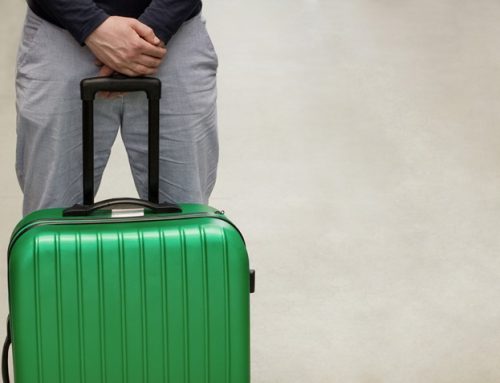Texas’s Sanctuary City Ban Has Trapped Immigrants In Terror
Immigrants & Many Cops Dislike The Law But There’s Nothing They Can Do.
Featured Photo by Drew Anthony Smith/Protesters in Austin during the Day Without Immigrants rally in February 2017.
May 7 2018, 10:47am
VICE–
For months, Jordy Balderas had been waiting for his chance to sit down with his sheriff in Austin. The Mexican-American high school senior, whose closest relatives are undocumented, had heard County Sheriff Sally Hernandez vocally oppose Texas’s anti-sanctuary bill, which forces local law enforcement to help the feds deport undocumented immigrants. Balderas wanted to urge Hernandez to resist the state’s immigration crackdown and gin up grassroots opposition to the law.
“My question for her was, ‘How do you think you can solve this problem and what can we do?’” Balderas told me. “I was expecting her to say, ‘We need more activists to make this work.” He hoped that Hernandez would also be moved by the fears of the immigrant community—Balderas had one undocumented family member who was too afraid to drive her chronically ill child to the doctor, and who would ask Balderas to check outside their house for police each morning. He told her that even he was scared of being stopped since he is Latino, even though he is a US citizen, and that if one of his relatives is deported, he likely won’t afford to attend college, where he plans to study nursing this fall.
“I could see she really cares about the community,” said Balderas, who met with Hernandez along with other members of Youth Rise Texas, an organization for young people impacted by deportation or incarceration. But the meeting forced Balderas to confront a harsh reality: There was nothing Sheriff Hernandez could do. Under Texas’s SB 4, signed into law a year ago Monday, she must turn any detained immigrants into federal immigration authorities upon request, and she can’t instruct her police officers to refrain from asking individuals’ immigration status.
“I don’t think she can change anything because of the law,” said the teen, who recently returned to the US after spending most of his life in Mexico. “She made it sound like she wants to be there for us but she cannot do much… What else can we do?”
Many local police departments opposed the anti-sanctuary measure pushed by Republican legislators and Governor Greg Abbott because they predicted that the immigrant community would become too fearful to report crimes, but they have had no choice but to follow the letter of the law. Austin, the state capital and a liberal mecca that prides itself on welcoming immigrants, has been the city most clearly caught in the middle. Local officials and organizations are struggling to rebuild ties with the wary immigrant community, but the truth is they can’t shield undocumented people from deportation.
“Even if we live in a community that’s a welcoming community, the reality is we live in state that’s hostile to immigrants,” said Angela-Jo Touza-Medina, longtime chair of the Immigrant Services Network of Austin, a group of service providers serving the immigrant community.
Over the past several months, Austin immigrants, like those throughout the state, have taken measures measures to protect themselves from increased enforcement. Some have chosen to leave Texas for states with less harsh immigration laws, or are contemplating doing so. “Every day I do consultations, folks are wondering whether or not they should stay in Texas and they cite SB 4,” Austin immigration attorney Faye Kolly told me. Others have avoided social services, law enforcement, public events, or driving their children to school, advocates said.
“When SB 4 conversations came up we started hearing from clients pretty quickly across the board about their fearfulness to come in and engage in services,” said Aja Gair, senior director of community advocacy for SAFE Austin, which supports domestic violence victims. Multiple undocumented domestic violence victims told SAFE staff they would not report abuse to law enforcement, Gair said. But now, that fear has become more generalized—not only due to SB 4, but also to the overall immigration climate.
SB 4 is being sued on multiple fronts, but judges ruled in March that it can take effect, meaning that Sherfiff Hernandez could face jail time and penalties of up to $25,000 for not complying.
“It was clear that Austin and Travis County were under attack,” Texas State Representative Eddie Rodriguez, whose district includes Austin, said of the passage of SB 4, which was partly prompted last year by Sheriff Hernandez’s decision to stop honoring ICE detainers for immigrants unless they were charged with serious crimes.
“We had a very progressive policy in Travis County and to the extent that we’re legally able to we’re trying to still do that,” Rodriguez said.
Sheriff Hernandez clearly represents her county’s progressive values—she campaigned on a pledge to stop handing detained immigrants to ICE, and she followed through, instituting the policy in early 2017. But she was effectively overruled by the state government and in September she reversed course when SB 4 went into effect, a move that immediately drew ire from immigrant advocates and distrust from the immigrant community.
“I recognize their pain, their fear, and that they’re hurt—it’s sad and I’m sad for them,” Sheriff Hernandez told me. “It’s frustrating and we’ve been trying to build a trusting relationship.”
In an effort to “alleviate or fix the damage” SB 4 has done to police-immigrant relations, Hernandez has led a public awareness campaign to try putting the immigrant community at ease, which includes messages on Spanish-language news outlets, more frequent town hall meetings, and discussions with groups like Youth Rise Texas.
“These young people say, ‘You don’t understand the fear we face every day.’ I do understand…I just can’t change what SB 4 has caused,” she said. She told me that at one public meeting this spring, “A woman stood up and spoke about how I made a promise to end immigration enforcement at the jail and how I didn’t keep my promise, and I had the opportunity to walk over and tell her I did keep my promise, I did everything I could do.”
“I have always followed the law and will continue to follow the law,” she said.
Following the law means Travis County Sheriff’s Office is handing dozens more immigrants to ICE each month for deportation proceedings. Many of those immigrants, Hernandez said, have been picked up for infractions as minor as disorderly conduct, public intoxication, or driving without a license (undocumented immigrants can’t get licenses in Texas).
Hernandez did not have the exact numbers for how many ICE detainers were being honored each month, but data I obtained through a Freedom of Information Act request earlier this year showed In February 2017, the first month of Hernandez’s sanctuary policy, 11 detainers were honored, all of them for cases where an immigrant had committed a serious crimes—a huge drop from when all detainers were honored and between 40 and 54 people were handed to ICE each month.
But today, immigrants passed over to ICE are even more likely to face deportation since the Trump administration is prioritizing all undocumented immigrants for removal, noted Austin immigration attorney Kate Lincoln-Goldfinch.
“If anyone is getting booked they’re going straight into the hands of ICE, and the big difference is everyone is an enforcement priority now,” said Lincoln-Goldfinch. She told me she’s had clients held by ICE recently who previously would have been immediately released, such as the mother of a young child and an individual booked on marijuana possession but never charged.
Governor Abbott maintains that sheriffs must honor all ICE detainers in order to ensure public safety in Texas communities. He said when he signed the bill last May that sanctuary jurisdictions like Travis County were “harboring people who have committed dangerous crimes.” Attorney General Ken Paxton’s director of communications, Marc Rylander, told me in an email that SB 4 was a “common-sense measure that ensures Texans cooperate with federal enforcement of immigration law.”
“Federal, state and local law enforcement must cooperate to maintain our nation of laws and prevent dangerous criminals from being released into our communities,” Rylander said, noting that the Fifth Circuit Court of Appeals in March recognized that the bill was constitutional. “Local officials admitted at trial that it is their duty to educate locals on what the law requires,” continued Rylander.
There has been no documented benefit to public safety in Texas as Governor Abbott pledged, but some police departments have taken note instead of a disturbing decrease in crime reporting by Latinos. Most notably, Houston Police Chief Art Acevedo reported a 42.8 percent decrease in rape reporting by Latinos in the first three months of 2017, which he attributed to fears stirred by the law.
Austin police, local officials, and advocates emphasize that individuals will not be asked their legal status if they report a crime, and Hernandez said she knows of no cases in which an officer has even asked someone their status, even under SB 4—but that hasn’t stopped fear from pervading the immigrant community.
Hernandez emphasized that police still have a “culture where we focus on safety over someone’s status,” which she said is the best way to protect the entire community.
“Oftentimes the people who are hurting the immigrant community could be hurting US citizens,” she said. “When you have people who are not coming forward for help it should hurt everybody and it does hurt everybody.”
Read original article here: https://www.vice.com/en_us/article/ne98yg/texass-sanctuary-city-ban-one-year-later-climate-of-fear
Share this story!
Contact a U.S. Immigration Attorney Today!
Categories
How To Find Us
What Our Clients Say
“This Lawfirm is great, very professional and helpful. I love that they are always in communication and always available for when you have questions . 100% recommended by me and my family. Thank you Lincoln-Goldfinch Law – Abogados de Inmigración”





